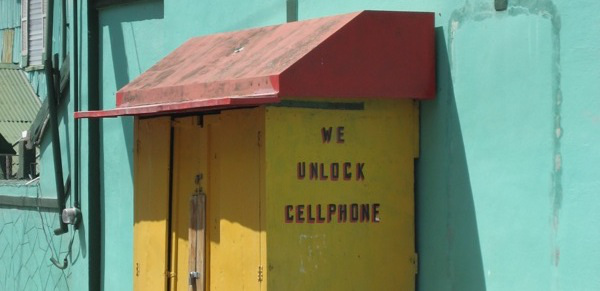Wireless Companies Adopt Voluntary Unlocking Standards. Are They The Right Ones? Image courtesy of (Consumerist)
As we mentioned in November, a big sticking point between the FCC and CTIA – The Wireless Association was the insistence by the FCC of a standard that would require carriers to proactively provide notice to consumers when their phones would become eligible for unlocking. The wireless industry understandably balked at that idea, given that it would be like reminding customers, “Hey, your contract is up. Why don’t you take your new phone over to our competitor?”
But looking at the six standards below, it appears as if CTIA ultimately relented, out of fear that the FCC would use its authority to require it anyway.
Here are the six additions that AT&T, Verizon, T-Mobile, and Sprint have agreed to and which will be added to the CTIA Consumer Code. Today’s agreement gives the carriers three months to implement at least three of the six standards, and a year to implement all six:
1. Disclosure: Carrier will post “clear, concise and readily accessible” policies on postpaid and prepaid mobile wireless device unlocking on their websites.
2. Postpaid Unlocking Policy: Carriers, upon request, will unlock wireless devices or provide the necessary information to unlock devices for their customers and former customers in good standing and owners of eligible devices after the fulfillment of their service contract, device finance planning or payment of ETF.
3. Prepaid Unlocking: Carriers, upon request, will unlock prepaid devices no later than one year after initial activation, consistent with reasonable time, payment or usage requirements.
4. Notice: Carriers will clearly notify customers with locked devices when those devices are eligible for unlocking. The carrier also has the option of automatically unlocking devices remotely when they become eligible. This is all to be done without an additional fee.
However, carriers “reserve the right to charge non-customers’/non-former-customers a reasonable fee for unlocking requests.”
5. Response Time: Carriers are given two business days after receiving a request to unlock the device or initiate a request to the manufacturer to unlock the device, or provide an explanation why the device does not qualify or why the carrier needs more time to process the request.
6. Deployed Personnel Unlocking: Carriers will unlock mobile wireless devices for deployed military personnel who are customers in good standing upon provision of deployment papers.
Carriers can deny any unlocking request if they have “reasonable basis to believe the request is fraudulent or the device is stolen.”
This may be the end of the year-long unlocking saga, which began when the Librarian of Congress listened to wireless industry lobbyists and made a change to the Digital Millennium Copyright Act that made it illegal for a consumer to unlock a new wireless device — even if he owns the device outright — without the permission of his current wireless carrier.
Since then, everyone from regular folks to advocacy groups to lawmakers and the White House has called for the Librarian to rethink his industry-biased decision, or for the FCC to take action that would allow consumers to unlock their devices without fear of violating the law.
In September, the Commerce Dept.’s, National Telecommunications and Information Agency formally petitioned the FCC to require the wireless industry to unlock consumers’ cellphones.
“This is a welcomed move that should give consumers more flexibility and choice in the wireless market. This agreement extends unlocking abilities to both pre and post-paid customers and also to devices gifted or purchased from outside the carrier,” said George Slover, senior policy counsel for Consumers Union. “The ability to unlock your phone is only effective if consumers are aware they can unlock, which is why we are encouraged that this announcement places an emphasis on notifying customers of their eligibility. Consumers Union is committed to monitoring the agreement to ensure that it works for consumers and urges all carriers to adopt these new policies.”
Slover did have some concerns about the fees wireless companies will allow themselves to charge to non-customers.
“We will be keeping an eye on these fees to ensure consumers are not priced out of unlocking their phones,” he explains.
Want more consumer news? Visit our parent organization, Consumer Reports, for the latest on scams, recalls, and other consumer issues.


